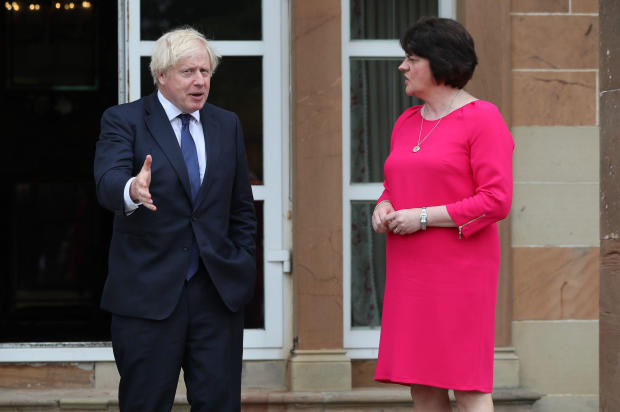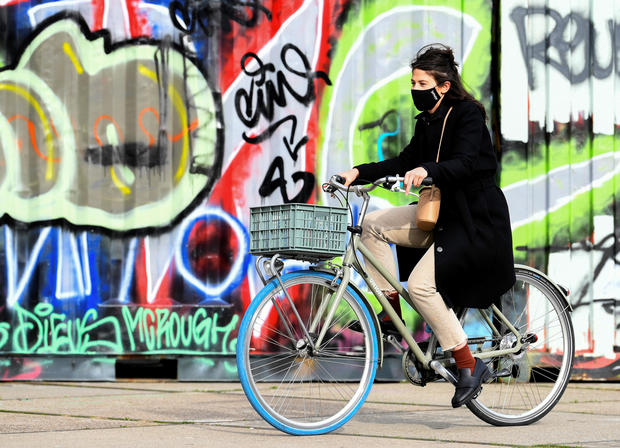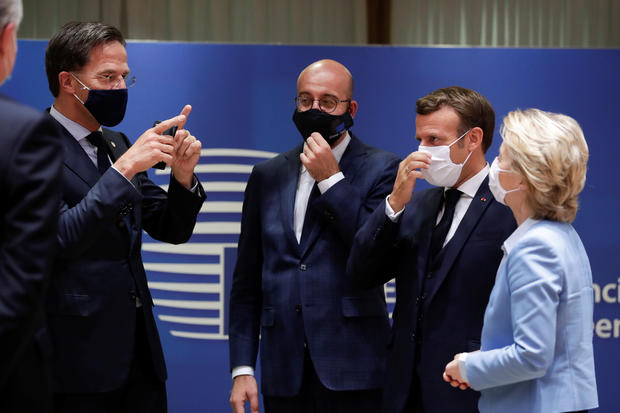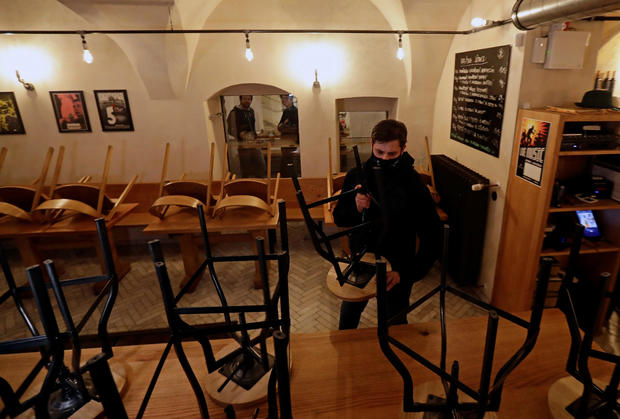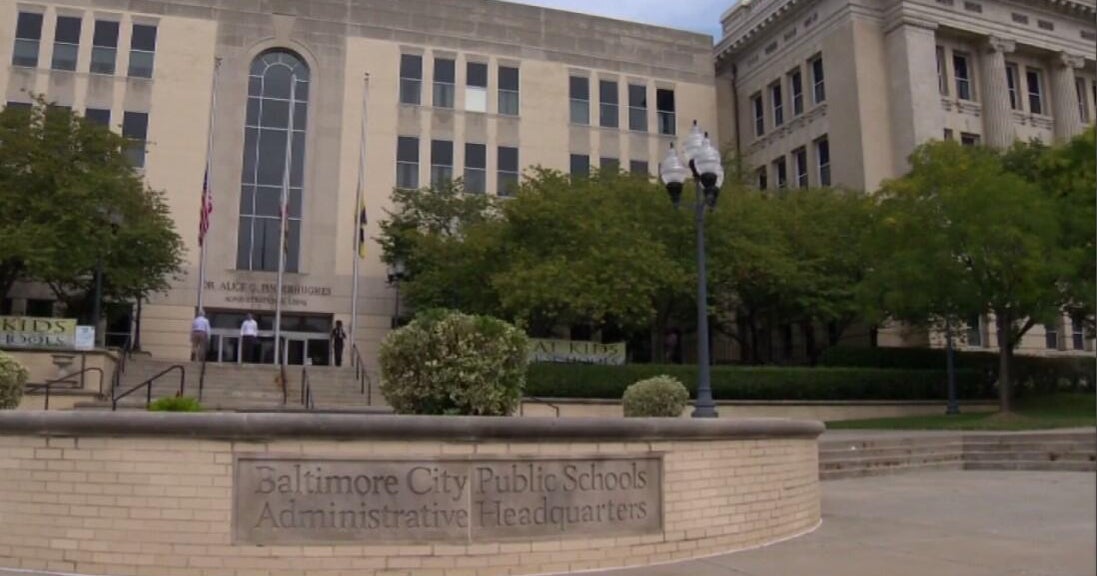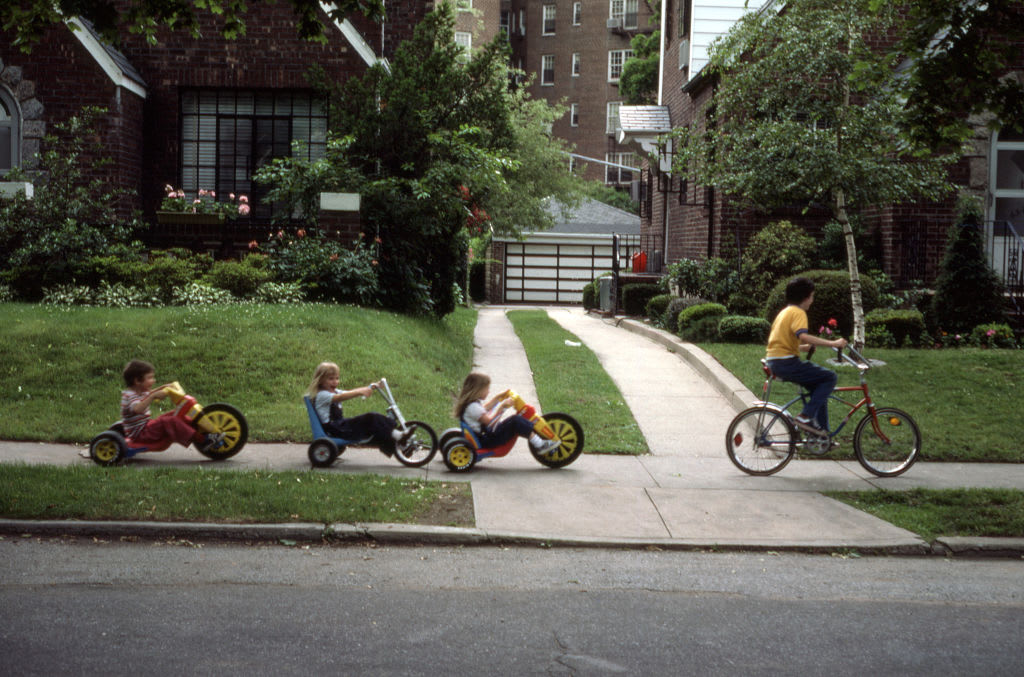COVID 2nd wave drives more European countries back into lockdown
London — More European countries have decided to reimpose nationwide lockdown measures to counter fast-rising coronavirus infection rates. Northern Ireland announced Wednesday that it would become the first among the United Kingdom's four nations to try a so-called circuit breaker lockdown. The tactic will see pubs and restaurants closed for all but takeout service, all schools closed and many other businesses greatly restricted for a short, defined period to try and break the cycle of spiraling infections.
Israel became the first country globally to reimpose a nationwide lockdown to stem COVID-19 infections when it ordered much of the economy and all schools to close on September 18. The government has now extended the restrictions to last a full month, until October 18. Other countries are quickly following suit.
Last week the Spanish capital of Madrid was put under an official state of emergency, banning non-essential travel in and out of the city. Italy and Poland have made it compulsory for people to wear masks in public places, and France has put Paris and several other cities on maximum alert — forcing bars and gyms to shut down again.
Germany, which still has a relatively low national infection rate compared to its neighbors, has also announced new restrictions on hospitality businesses in some regions.
But in a growing number of European nations, the measures now go much further, and apply to all residents.
Great Britain and Northern Ireland
In Northern Ireland, the business closures and restrictions will last a month, while the usual one week half-term school break at the end of October will be extended by another week.
"The numbers have continued to rise, the doubling [infection] rate is of grave concern, and hospitalizations are on the increase," Northern Ireland's First Minister Arlene Foster said in a letter to lawmakers announcing the new measures on Wednesday. "This is deeply troubling and more steps are now urgently needed."
Retail stores will be allowed to stay open, but "close contact services," like salons and other health and beauty treatments, are barred. All residents will be urged to avoid unnecessary travel and to work from home. Universities are to adopt remote teaching to the extent possible.
Northern Ireland's approach is now the most aggressive among Scotland, Wales and, most notably, England, where the vast majority of U.K. residents live and where infection rates are highest. The semi-autonomous "devolved" administrations in Scotland and Wales are considering similar action.
British Prime Minister Boris Johnson, whose government determines health policy for England, has come under intense pressure since announcing his latest plan to address the dizzying rise in infections — and crucially, hospitalizations and deaths — in the country. Critics say the new 3-tier system of staged restrictions has been implemented with little clarity, and that the indefinite time frame merely prolongs uncertainty that will damage businesses more than the short, sharp shock of a finite closure.
What's more, a government scientist standing right next to Johnson during the unveiling news conference on Monday admitted that the new measures, on their own, wouldn't be enough to curb the spread of the deadly virus. The national government said it would depend on local leaders taking further steps, but there's been little sign of that happening.
Johnson has faced even greater criticism since his government's own panel of scientific advisers, known by the acronym SAGE, published a document immediately after his announcement showing that it had recommended a two-week "circuit breaker" lockdown three weeks ago.
The panel, which includes experts in everything from epidemiology and medicine to economics and public education, warned the government on September 21 that if drastic action wasn't taken, Britain could face a "very large epidemic with catastrophic consequences." All of the recommendations were rejected by Johnson and his fellow ministers, who say the damage to the economy would have been too great.
Johnson's chief political rival, Sir Keir Starmer, seized the opportunity on Tuesday to officially endorse a circuit breaker lockdown on behalf of his opposition Labour Party, calling on the prime minister to accept SAGE's advice, albeit belatedly.
At just over 43,000, the U.K. has recorded more COVID-19 deaths than any other European nation. Even taking England alone, with more than 38,000 fatalities, has experienced a deadlier epidemic than the 2nd-worst-hit EU nation, Italy.
The Netherlands
The Netherlands was headed into "partial lockdown" from Wednesday evening to curb one of Europe's most rapid coronavirus surges, with all bars, cafes and restaurants to close. Dutch Prime Minister Mark Rutte announced Tuesday that the sale of alcohol and cannabis would also be banned after 8 p.m. local time every day in a bid to reduce the social contacts that have led to the rise in COVID-19 cases.
After long refusing to order the wearing of masks, Rutte finally said that non-medical face coverings must be worn in all public indoor spaces by people aged over 13.
"We are going into a partial lockdown. It hurts but it's the only way, we have to be stricter," Rutte told his country. "If we do all of this, we can quickly return to a more normal life."
The rules were to last for an initial period of two weeks, and then the government will review progress and determine how to proceed.
The Dutch government for months has opted for what Rutte called an "intelligent lockdown" policy, which was far more relaxed than many of its European neighbors, but it has scrambled to control the second wave of the disease.
The Netherlands currently has the third highest rate of new infections per 100,000 people in Europe over the last 14 days, behind only the Czech Republic and Belgium, according to the European Centre for Disease Prevention and Control.
Czech Republic
Schools, bars and clubs in the Czech Republic have been told to close their doors. Restaurants will only be allowed to operate for delivery and takeout, and only until 8 p.m. The new lockdown rules began Wednesday and were to last for three weeks, until November 3.
College dorms are being shuttered with students sent home. Officials said kindergartens alone would remain open, according to BBC News, and that measures would be put in place to care for the children of essential workers during the new lockdown.
Face masks were already mandated in stores and on buses and trains, but Czech residents will now also have to wear them at outdoor train and tram stations, among other restrictions.
With a population of only around 11 million people, the Czech Republic has confirmed more than 1,100 COVID-19 deaths since March, but it saw its highest number of fatalities in a single day, 55, on Monday, and for only the second time since the pandemic struck it also recorded more than 8,000 new cases.
The country has seen more new infections over the past couple weeks in absolute numbers than neighboring Germany, home to eight times as many people.
BBC News noted that the Czech Republic quickly got on top of its coronavirus outbreak in the spring by imposing a strict lockdown, closing its borders and mandating mask use. But those restrictions were abandoned almost universally in June, sparking a huge celebratory dinner on Prague's Charles Bridge to mark what many in the country touted as the end of the COVID-19 crisis.
